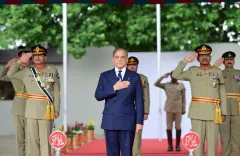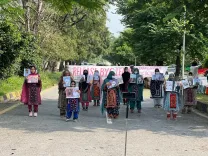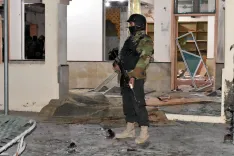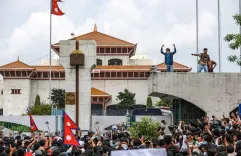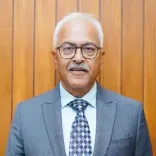Should Nepal Seek a Greater Role in Its Relationship with India?
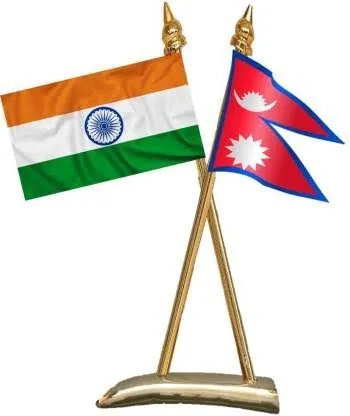
Synopsis
Key Takeaways
- Leaders advocate for a stronger Nepal-India relationship.
- Open dialogue on sensitive issues is crucial.
- National interest should be at the forefront of discussions.
- Terrorism poses a common challenge for both nations.
- Historical ties provide a foundation for future collaboration.
Kathmandu, May 20 (NationPress) Leaders from Nepal's political parties, along with lawmakers and experts, have emphasized the need for the Himalayan nation to assert itself more in its relationship with India, particularly in light of the April 22 Pahlagam terror incident.
Former minister and Nepali Congress leader, Minendra Rijal, stated, “We should strive to carve out a larger space in New Delhi based on the partnership we've built, especially following the Pahalgam attack.”
While addressing an event in Kathmandu on Monday organized by the Institute for Public Policy and Partnership, Rijal noted that with some neighboring countries experiencing challenges in their ties with India, Nepal must take advantage of the situation.
He advocated for a genuine and transparent dialogue with India regarding sensitive topics. “Nepal-India relations are irreplaceable. Even though India is a significant country, we do have our grievances. Our relationship transcends the Roti-Beti cliché (sociocultural ties), and cannot be confined to a single framework. However, often our leaders focus more on their political agendas and election prospects rather than fostering dialogue with India,” Rijal remarked.
Former foreign minister of Nepal, NP Saud, speaking at the same event, stated that achieving completely balanced diplomatic relations is unrealistic, despite what some may propose.
“We must prioritize our national interest while engaging with India. Non-alignment is becoming less relevant, and multilateralism is increasingly vital for us. Given the changing global and regional landscape, we need to refine our relations with India,” Saud explained.
In the meantime, Vijaya Jolly, former head of the BJP's foreign cell, called for enhanced cooperation from Nepal in India’s battle against terrorism, adding that India respects Nepal’s ability to maintain an independent foreign policy with other nations.
He emphasized the enduring neighborly ties between the two countries, asserting that terrorism has no place in South Asia. “The Saarc initiative is ineffective, and terror cannot coexist with trade. Post-2025, we need to redefine our bilateral relations,” Jolly stated, denouncing the terror attack.
“India was the first to respond when an earthquake struck Nepal in 2015. Prime Minister Modi has visited Nepal a record five times since 2014, whereas nine Nepali prime ministers have made official visits to India. With over 7.5 million Nepali nationals residing and working in India, our relationship is both special and unique. The security forces of both nations are ensuring the safety of their borders,” he added.
According to the Indian Ministry of External Affairs (MEA), India and Nepal share a close and long-standing relationship characterized by extensive collaboration in various fields, including defense, trade, development, and cultural exchange.
The MEA highlighted that Nepal is a key partner under India’s “Neighbourhood First” policy. Frequent high-level visits and exchanges have further strengthened bilateral partnerships, allowing leaders to regularly assess the comprehensive scope of their relationship.


